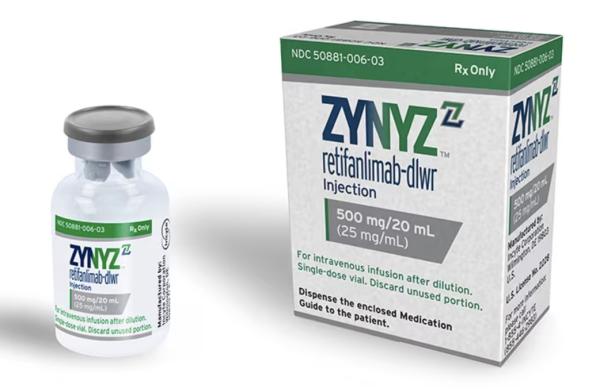Retifanlimab Disease Interactions
There are 4 disease interactions with retifanlimab.
PD-1/PD-L1 inhibitors (applies to retifanlimab) HSCT
Moderate Potential Hazard, Moderate plausibility. Applicable conditions: Bone Marrow Transplantation
Fatal and other serious complications can occur in patients who receive allogeneic hematopoietic stem cell transplantation (HSCT) before or after being treated with a programmed death receptor-1/ligand-1 (PD-1/PD-L1) blocking antibody. Transplant-related complications include hyperacute graft-versus-host disease (GVHD), acute GVHD, chronic GVHD, hepatic veno-occlusive disease after reduced intensity conditioning, and steroid-requiring febrile syndrome (without an identified infectious cause). These complications may occur despite intervening therapy between PD-1/PD-L1 blockade and allogeneic HSCT. It is recommended to follow patients closely for evidence of transplant-related complications and intervene promptly. The benefit versus risks of treatment with a PD-1/PD-L1 blocking antibody before or after an allogeneic HSCT should be considered.
PD-1/PD-L1 inhibitors (applies to retifanlimab) immune system disorder
Moderate Potential Hazard, Moderate plausibility. Applicable conditions: Autoimmune Disorder
Programmed death receptor-1/ligand-1 (PD-1/PD-L1) blocking antibodies can cause immune-mediated adverse reactions, which may be severe or fatal. Immune-mediated adverse reactions can occur in any organ system or tissue at any time after starting therapy. This may be considered when using PD-1/PD-L1 blocking antibodies in patients with immune system disorders (e.g., ulcerative colitis, Crohn's disease, lupus) or with conditions affecting the nervous system (e.g., myasthenia gravis, Guillain-Barre syndrome). It is recommended to monitor patients closely for signs/symptoms that may be clinical manifestations of underlying immune-mediated adverse reactions.
PD-1/PD-L1 inhibitors (applies to retifanlimab) organ transplant
Moderate Potential Hazard, Moderate plausibility.
Solid organ transplant rejection and other transplant (including corneal graft) rejection have been reported with the use of programmed death receptor-1/ligand-1 (PD-1/PD-L1) blocking antibodies. This may be considered when using PD-1/PD-L1 blocking antibodies in patients who have received a solid organ or other transplant.
Retifanlimab (applies to retifanlimab) hepatic impairment
Moderate Potential Hazard, Moderate plausibility. Applicable conditions: Liver Disease
No dose adjustment of retifanlimab is recommended for patients with mild hepatic impairment. No clinical studies were conducted with retifanlimab in patients with moderate to severe hepatic impairment. Retifanlimab can cause immune-mediated hepatitis. Monitor liver enzymes at baseline and periodically during treatment. Use caution in patients with hepatic impairment.
Switch to professional interaction data
Retifanlimab drug interactions
There are 605 drug interactions with retifanlimab.
More about retifanlimab
- retifanlimab consumer information
- Check interactions
- Compare alternatives
- Side effects
- Dosage information
- During pregnancy
- Drug class: anti-PD-1 and PD-L1 monoclonal antibodies (immune checkpoint inhibitors)
- Breastfeeding
- En español
Related treatment guides
Drug Interaction Classification
| Highly clinically significant. Avoid combinations; the risk of the interaction outweighs the benefit. | |
| Moderately clinically significant. Usually avoid combinations; use it only under special circumstances. | |
| Minimally clinically significant. Minimize risk; assess risk and consider an alternative drug, take steps to circumvent the interaction risk and/or institute a monitoring plan. | |
| No interaction information available. |
See also:
Further information
Always consult your healthcare provider to ensure the information displayed on this page applies to your personal circumstances.


